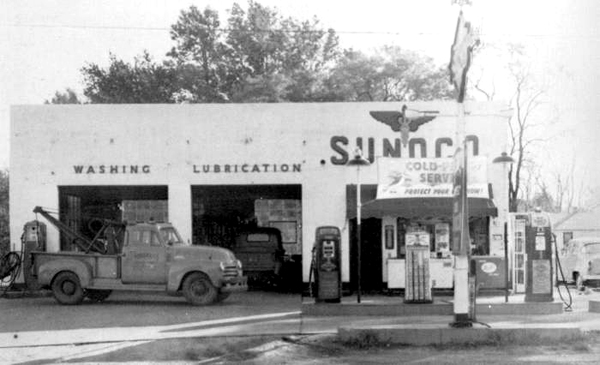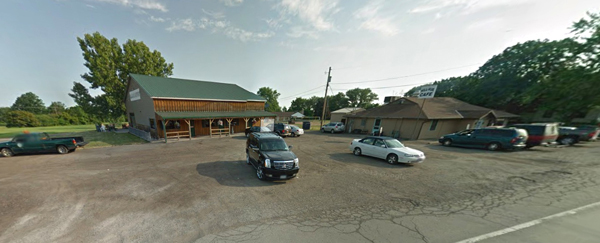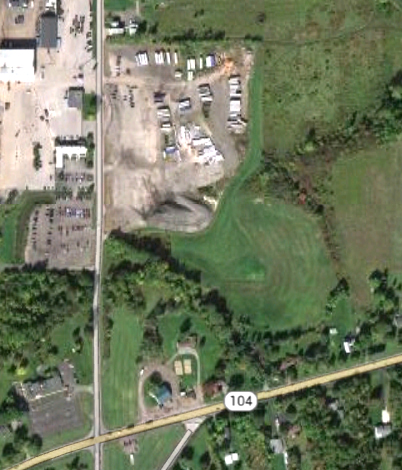
 |
| Councilman Mike Mara (left) may not have known that the property he voted to approve without any environmental study, owned by his political ally, and former Town Supervisor Steven Reiter, was once a gas station. |
|
|
| Supervisor Dennis Brochey, who did not vote on the Reiter project, says the entire project should start from scratch. |
|
|
|
|
Last week, the proposed Bridgewater apartment complex project received a couple of setbacks.
And there is worse to follow.
First the setbacks: ON Wednesday, the Niagara County Industrial Development Agency rejected a request from Bridgewater Estates to extend the deadline for it to take advantage of the $1.8 million in tax breaks it was granted last year, making the tax break deal essentially dead.
Then on Thursday, the five-member Lewiston zoning board of appeals tabled its public hearing concerning the Bridgewater Estates LLC project, after its applicants, Rane Property Management of Amherst, requested the matter not be discussed. It was a good thing for the developers that it was tabled since about 50 residents came, looking to express their concerns, and because it was tabled they were unable to condemn the project and its request to build 50 foot tall, high density buildings in a rural part of the town.
But the real news, something uncovered by the Niagara Falls Reporter- and it's just breaking now - is that the site of Bridgewater, owned by the former town supervisor, Steven L Reiter's mother was once the site of a gas station and body shop.
The Reporter has consulted DEC bulk fuel storage records, dating back to 1972, and learned that there were four underground petroleum-based storage tanks, along with above ground pumps, that may have contained gasoline, diesel and kerosene and possibly dating back to the 1950's.
Additionally, the Reporter learned that a body shop existed on the site.
When contacted by the Reporter, Reiter admitted his father had owned a gas station and others had operated it and a body shop over the time period they owned it commencing in the late 1940's.
 |
| Former Councilman Ernie Palmer voted to approve the Reiter project. He resigned from the board this year. |
|
|
|
|
At one time it had been a Sunoco and at other times other companies were employed. The location was a gas station for more than 20 years.
At the location that is presently the De La Casa Restaurant there was a body shop.
Astonishingly, the town board, the town planning board and the town zoning board were never informed of this and no record of any public discussion on the possible hazards were ever discussed.
More importantly, Reiter, in his role as supervisor, never required any kind of soil testing.
The approval process went fast- with Supervisor Reiter approving the project while he was quietly listed as a silent partner.
Supervisor Reiter signed off on the environmental impact statement (SEQRA) saying there were no environmental issues that needed to be addressed.
So, why worry about a gas station or body shop that went out of business 40 years ago?
If the storage tank did not have adequate product protection, such as double walls, hazardous products may have seeped into the ground.
There could be petroleum products and, from the body shop, lacquers, paint thinners and oil based paint with lead in it.
These might still be in the soil or contaminating the water.
Of course, on the other hand, there may be no problem whatsoever.
But- and here's the point- you can't simply dismiss it out of hand. Under any reasonable town approval process, drilling and testing is required.
The fact that Reiter, as supervisor, failed to require testing speaks volumes. A development project was to be built on the site of what was once a body shop and gas station that did not require soil and water testing, and, instead, got approved on a short form SEQRA that said no testing is required, is probably unique in the annals of modern development.
The Bridgewater site should undergo "intrusive" testing with drilling, core samples and water table samples before it proceeds one step further.
The history of pre-1970's facilities is there was hazardous chemicals used. When these underground tanks were pulled out, was there leakage?
In those days, no governmental agency checked tank removals. There could be poisons lodged in the soil: Hydro carbons, chrome and lead, highly volatile organic based thinners and oil based paint high in lead.
 |
| The property was once a gas station and body shop.
|
|
|
|
|
No one should assume it is clean.
Normally a supervisor who had the knowledge that there was a gas station and a body shop on a proposed development site would mention it.
Reiter knew it.
But he also probably knew that the developer (he and his partners) might spend $100,000 on drilling and testing, water samples and soil samples.
And that might be just the beginning.
What if they find something?
How much is it going to cost to clean it up?
One could spend more than a million cleaning it up, based on DEC regulations.
Well it is too late now.
The Town has been put on notice.
They cannot ignore it.
The town must now get information on what is below the ground and on the surface.
Which points out just what the Reporter has said all along: The entire process was flawed and the supervisor should not be the silent partner of a development project that he, himself, approves.
Reiter may have recused himself from some aspects of the project.
But his signature is affixed to the April 2013, SEQRA form which stated that there is no environmental issues with the project and that no testing, or studies of any sort is required.
If there is contaminant soil, building on the site presents a danger since the soil is likely to be disturbed and carcinogens, lead and other poisons may become more hazardous.
Outside of Lewiston, no one would be comfortable until it was tested.
I wonder what the planning board, the zoning board and the town board will do?
 |
| Aerial view shows this country property is not in a high density area.
|
|
|
|
|
|






